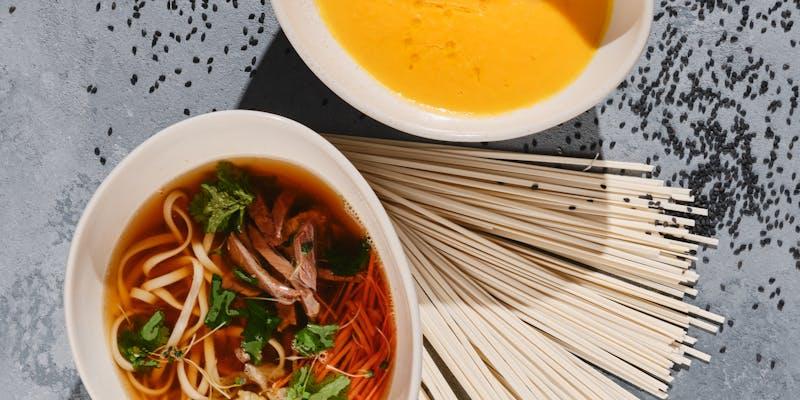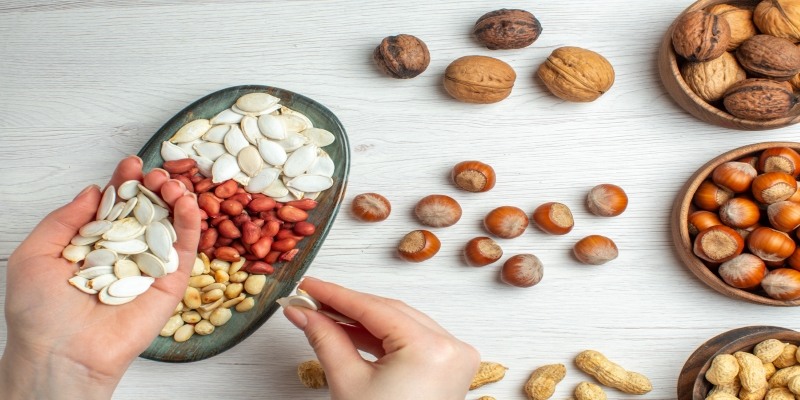Curious about how nutritious your noodle cup soup is? Little noodles are formed by compressing dried vermicelli. The flavor sachet included with the product is highly salted and provides minimal nutritional value. Traditional Japanese ramen cup noodles are adored by individuals worldwide, from Japan to other countries. There are numerous variations on the conventional ramen dish, which comprises a broth foundation, long, thin wheat noodles, and an assortment of garnishes. Even so, a more accurate representation of the dish would be as a broth containing noodles instead of noodles alone.
Nutrition Of Cup Noodles Soup

Flavors
Different Cup Noodles chicken company brands offer unique, distinct flavors of Cup Noodles. One beef, three seafood, and six chicken varieties are included. Options include substantial chicken, beef, salsa picante, and fiery chile. Various varieties do not possess identical nutritional information.
Calories
The noodles are served in the cup noodles chicken. While the Beef flavor contains the most calories (330), the Spicy Chili Chicken flavor contains the fewest (280). Variations in flavor affect the calorie count. Extensive fat, predominantly saturated fat, comprises Fat Cup Noodles.
Fat
Spicy Chile Chicken contains the least fat at 67 g, while Hearty Chicken has the most at 1215g. A diet high in saturated fat increases cholesterol levels and the risk of cardiovascular disease. The saturated fat intake should be less than 20 grams daily, and the total fat should be limited to 65 grams on a 2,000-calorie diet. This is the optimum limit.
Carbohydrates
The cup noodles chicken distinct carbohydrate journal is its primary calorie load. It provides 1.5 2.1 grams of fiber and 36 42 grams of carbohydrates per serving. Carbohydrates supply the body with energy; thus, a diet with high-carbohydrates is beneficial. The healthy and ideal corresponding carbohydrate amount for a 2,000-calorie diet will be within a range of (225-325 grams) or 45-65% of the calories.
Protein
The cup noodles chicken makes a protein content declaration of between 6 and 8 grams per serving. A standard beef flavor contains 8 g; the rest are 6 g. A protein intake towards the diet of 10 to 35% calories is adequate. Protein fulfills muscle maintenance, cell division, and immune operation, a few of the protein's numerous functionalities.
Sodium
Saltiness characterizes cucumbers. The sodium content varies between 790 and 1,480 mg, with Chicken Vegetables containing the highest concentration and Hearty Chicken the lowest. Consume an extraordinary quantity of salty foods to elevate blood pressure. Less than 2,300 mg is the recommended daily dosage.
Disadvantages Of Cup Noodles Soup

High Salt Content
Excessive ingestion of sodium from instant noodles may negatively promote the onset of certain diseases. The increase in the levels of Na+ plays a key role in the majority of physiological activities that, when not under control, may lead to the development of life-threatening problems such as edema, renal failure, and hypertension. Several companies may improve their taste by adding salt flavor to their instant noodles.
Inadequate Nutrition
Protein, fiber, and healthy lipids are critical nutrients commonly lacking in processed flour, from which instant noodles are packaged. Consequences of this nature include inadequate sustenance; frequent consumption may lead to deficiencies. They could provide a temporary energy supply, but their lifespan is limited.
Raised Risk of Cancer
Among the dangerous compounds in instant noodle cups packaging is bisphenol A. Some studies have linked frequent instant noodle cups use to stomach cancer. Eating instant noodles more than twice weekly elevated stomach cancer risk in women by 68%. Studies reveal that fresh noodle soup has 140 times less bisphenol A (BPA) than a certain brand of quick noodles, despite the manufacturer's false claims.
Digestive Problems
Some individuals have significant gastrointestinal issues because quick noodles are low in fiber. Their salt content may induce bloating, constipation, and gas. Cup noodles chicken might cause indigestion and constipation.
Adverse Impact on Mental Health
Instant noodles may affect mental health by disrupting the brain's chemical equilibrium. Researchers identified a risk of anxiety and despair beyond two servings of quick noodles per week. In one research, instant noodle cups users had higher rates of mental health issues than non-users.
How to Make Cup Noodles Soup More Nutritious
Add Veggies And Greens
Grown vegetables give extra nourishment, Which everyone enjoys. Bok choy, mushrooms, cabbage, and vegetables add flavor, texture, and nutrition to a meal fast. Either fresh or frozen veggies may be cooked in broth.
Include Protein
For protein, consider consuming meat, tofu, or a poached or sauted egg. Protein sources include poultry, cattle, pork, crustaceans, and marine items. Chicken ramen cup noodles with bok choy and soy eggs will become one of your beloved dishes.
Deduct Salt
To reduce sodium, simply use fifty percent of the flavor sachet. Straining the cooked noodles or serving them with less liquid will reduce the dish's sodium content.
Always Season
Considering the potential health benefits and delectable nature of homemade ramen cup noodles, the additional effort required to prepare one may be justified. An abundance of instructional videos on YouTube can inspire novel recipes.
Final Thoughts
The fresh noodle business in Japan is well-known. Though uncommon, nostalgic eateries in large cities cook their noodles in the old-fashioned manner. Salt, pork, soy, miso, or both may flavor the soup. Be aware that broths are primarily meat and high in salt. Research shows that eating ramen cup noodles in women increases metabolic syndrome risk. Instant noodles elevate metabolic syndrome risk by 68% when consumed more than twice weekly. This remains true despite doing several sports and eating well. Processed foods like saturated fat and salt may be enlightening. They promote hypertension, diabetes, heart disease, stroke, and hyperglycemia.
Diseased hearts may cause myocardial infarction. Hypertension raises salt levels, which increases heart failure and stroke risk. USDA.gov states generic ramen cup noodles contain 65 percent of the daily salt requirement. They may boost your salt consumption.




